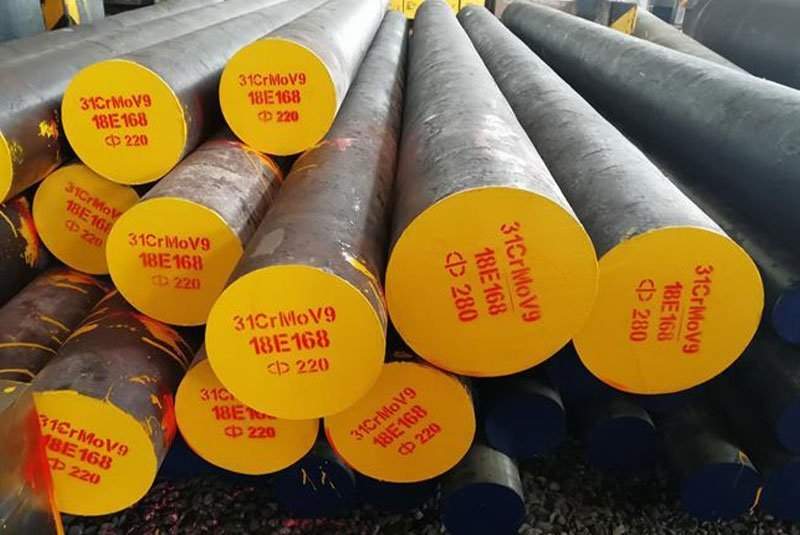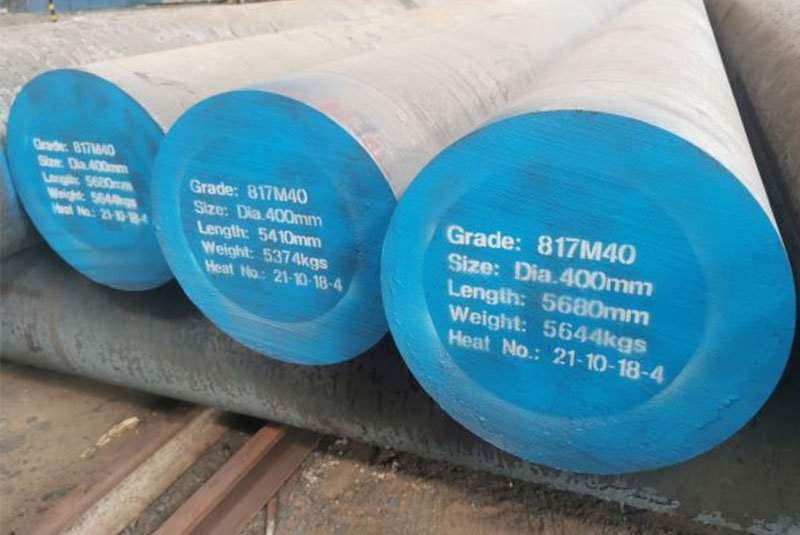Welcome to My Blog!
Before we dive into the content, I’d love for you to join me on my social media platforms where I share more insights, engage with the community, and post updates. Here’s how you can connect with me:
Facebook:https://www.facebook.com/profile.php?id=100085401406977
LinkedIn:https://www.linkedin.com/showcase/102680001/admin/dashboard/
Now, let’s get started on our journey together. I hope you find the content here insightful, engaging, and valuable.
Introduction
Understanding the unique alloy steel characteristics is crucial for industries that require materials with exceptional strength, durability, and resistance to wear and corrosion.Alloy steel is a critical material used in various industries due to its enhanced properties and versatility. Its characteristics make it suitable for applications that demand high strength, durability, and resistance to wear and corrosion. In the manufacturing of machinery, these properties are crucial as they directly impact the performance, lifespan, and efficiency of the equipment. This blog will delve into how the unique characteristics of alloy steel enhance the durability of machines and machinery components, providing a comprehensive understanding for industrial buyers and engineers.
Understanding Alloy Steel Characteristics

Alloy steel is created by adding different elements, such as chromium, nickel, molybdenum, and vanadium, to carbon steel. These additions improve the steel’s mechanical properties and offer specific benefits that are essential for machine durability. Here are some key characteristics of alloy steel that make it a preferred material for machine manufacturing:
High Strength and Toughness
One of the primary characteristics of alloy steel is its high strength and toughness. These properties ensure that machines made from alloy steel can withstand heavy loads and resist deformation under stress. This is particularly important in industries where machinery is subjected to high-impact forces, such as in construction and mining.
Enhanced Wear Resistance
Alloy steel exhibits excellent wear resistance, which is crucial for components that experience constant friction and abrasion. The presence of elements like chromium and vanadium forms hard carbides within the steel, providing a durable surface that resists wear and extends the life of machine parts.
Corrosion and Oxidation Resistance
The addition of chromium and other elements in alloy steel enhances its corrosion and oxidation resistance. This characteristic is vital for machinery used in harsh environments, such as chemical processing plants or marine applications, where exposure to corrosive substances can significantly reduce the lifespan of equipment.
Improved Hardenability
Alloy steel has a superior hardenability compared to carbon steel. This means that it can be hardened more effectively through heat treatment, resulting in a tougher and more durable material. This property allows for the manufacture of machine components that can maintain their hardness and strength even under extreme operating conditions.
Better Machinability and Formability
Despite its strength and hardness, alloy steel can be machined and formed into complex shapes, making it ideal for manufacturing intricate machine parts. The enhanced machinability reduces production time and costs, while the ability to form components with precise dimensions ensures optimal performance and reliability.
Advantages of Alloy Steel in Machine Durability
Using alloy steel in the production of machinery offers several advantages that contribute to increased durability and performance. Below are some of the main benefits:
Extended Service Life
The high strength, wear resistance, and corrosion resistance of alloy steel ensure that machine components last longer, reducing the frequency of replacements and maintenance. This extended service life translates to lower operating costs and increased uptime for industrial operations.
Reduced Maintenance Costs
Due to its durability, machinery made from alloy steel requires less frequent maintenance. The material’s resistance to wear and corrosion means that components are less likely to suffer from damage, reducing the need for costly repairs and downtime.
Enhanced Safety
Machinery constructed from alloy steel offers better safety due to its reliability and resistance to failure. This is especially important in industries where equipment failure can lead to hazardous situations, such as in mining or heavy manufacturing.
Improved Performance in Extreme Conditions
Alloy steel components can perform reliably under extreme conditions, such as high temperatures, corrosive environments, and high-stress applications. This characteristic makes it suitable for machinery used in demanding industries like aerospace, automotive, and oil and gas.
Optimized Weight-to-Strength Ratio
The optimized weight-to-strength ratio of alloy steel allows for the production of lighter yet stronger machine components. This is beneficial in applications where reducing the weight of equipment can improve efficiency and reduce fuel consumption.
Applications of Alloy Steel in Machinery
Alloy steel is used in various machinery applications due to its superior characteristics. Here are some common uses:
Gears and Shafts
Alloy steel is commonly used in the production of gears and shafts, where high strength and wear resistance are crucial. The ability to withstand constant stress and motion makes alloy steel ideal for these components.
Bearings and Bushings
The wear resistance of alloy steel makes it a preferred material for bearings and bushings, which are subjected to continuous friction. Using alloy steel in these components helps prevent premature wear and extends their service life.
Cutting Tools
Alloy steel is often used to manufacture cutting tools due to its hardness and ability to maintain a sharp edge. This characteristic is essential for precision machining and cutting operations in various industries.
Heavy Equipment Parts
Components of heavy equipment, such as bulldozers, excavators, and cranes, are often made from alloy steel to withstand the rigorous demands of construction and mining operations.
Automotive and Aerospace Components
In the automotive and aerospace industries, alloy steel is used for critical components like engine parts, transmission gears, and landing gear. Its high strength-to-weight ratio and durability are essential for the safety and performance of these vehicles.
Comparison of Different Alloy Steel Grades for Machine Durability

The table below compares various alloy steel grades based on their key characteristics, which are crucial for machine durability.
| Alloy Steel Grade | Composition | Key Characteristics | Typical Applications |
|---|---|---|---|
| 4140 | Chromium, Molybdenum | High strength, good hardenability, wear resistance | Gears, shafts, bolts |
| 4340 | Nickel, Chromium, Molybdenum | Excellent toughness, high strength, fatigue resistance | Aircraft parts, heavy-duty axles |
| 8620 | Nickel, Chromium, Molybdenum | Good wear resistance, case hardening capability | Gears, bushings, pinions |
| H13 | Chromium, Molybdenum, Vanadium | High heat resistance, toughness, wear resistance | Cutting tools, die casting, extrusion |
| D2 | High Carbon, Chromium | High hardness, abrasion resistance, good edge retention | Punches, dies, shear blades |
Conclusion
The unique alloy steel characteristics, such as high strength, wear resistance, and corrosion resistance, play a significant role in enhancing the durability of machines and machinery components. By choosing the appropriate alloy steel grade for your specific application, you can significantly improve the performance and longevity of your equipment. Understanding the properties and benefits of different alloy steels allows you to make informed decisions, ensuring that your machinery operates efficiently and reliably under various conditions.
FAQ
What are the key alloy steel characteristics?
The key alloy steel characteristics include high strength, improved hardness, resistance to wear and corrosion, and enhanced toughness. These properties make alloy steel ideal for demanding applications in various industries.
How do alloy steel characteristics differ from those of carbon steel?
Alloy steel characteristics such as higher strength, better hardness, and improved corrosion resistance set it apart from carbon steel, making it more suitable for applications requiring durability and performance.
Why are alloy steel characteristics important for industrial applications?
Alloy steel characteristics like enhanced strength and wear resistance ensure that industrial components can withstand harsh conditions and heavy loads, leading to longer service life and reduced maintenance costs.
What alloy steel characteristics contribute to its use in high-temperature environments?
The presence of elements like chromium, molybdenum, and vanadium in alloy steel enhances its ability to retain strength and resist oxidation at high temperatures, making these alloy steel characteristics critical for applications like turbine blades and engine parts.
How do alloy steel characteristics affect machinability?
While some alloy steel characteristics, such as high hardness, can make machining more challenging, specific alloy compositions are designed to improve machinability without compromising strength and durability.
What are the main alloy steel characteristics that improve fatigue resistance?
Alloy steel characteristics such as refined grain structure and the addition of elements like nickel and chromium enhance fatigue resistance, making it suitable for components that experience cyclic loading, such as springs and rotating shafts.
How do alloy steel characteristics impact the choice of welding methods?
Alloy steel characteristics, like the presence of certain elements, can influence the welding process. For example, steels with high carbon content require specific preheating and post-weld heat treatment to prevent cracking.
What role do alloy steel characteristics play in automotive manufacturing?
Alloy steel characteristics such as high tensile strength and impact resistance make it ideal for manufacturing critical automotive components like gears, axles, and structural parts, ensuring vehicle safety and performance.
Can alloy steel characteristics be altered through heat treatment?
Yes, heat treatment processes such as quenching and tempering can modify alloy steel characteristics like hardness and strength, tailoring the material to specific application requirements.
How do alloy steel characteristics influence its use in construction?
The high strength, toughness, and corrosion resistance of alloy steel characteristics make it a preferred material for construction applications, including bridges, buildings, and infrastructure projects where reliability and longevity are essential.
